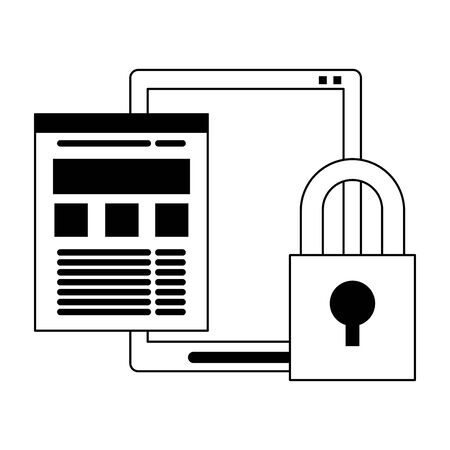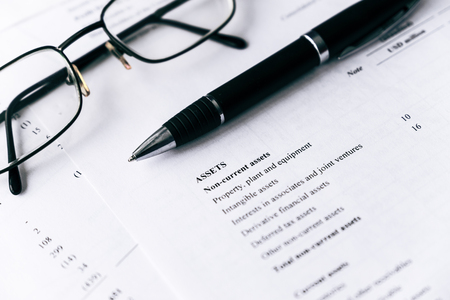1. Introduction: The Importance of Keeping Personal Records
In the United States, keeping personal records is more than just good advice—its a necessity for managing your everyday life. Whether you are dealing with insurance claims, filing taxes, or facing legal situations, having your documents in order can make all the difference. Many Americans may not realize how much easier life can be when you have everything documented and organized.
Why Is Documentation So Important?
Think about the moments when you need to prove something—maybe it’s your health insurance coverage after an accident, your tax payments at filing time, or your ownership of property during a legal dispute. Without proper documentation, you could face delays, financial loss, or even legal trouble. In fact, in many cases, if it’s not written down, it didn’t happen as far as insurers, tax authorities, or courts are concerned.
Common Scenarios Where Personal Records Matter
| Situation | Documents Needed | Potential Consequence Without Records |
|---|---|---|
| Filing an Insurance Claim | Policy documents, receipts, photos of damages | Claim denial or reduced payout |
| Preparing Taxes | W-2s, 1099s, receipts for deductions | Missed deductions or IRS penalties |
| Legal Disputes (e.g., landlord-tenant) | Lease agreements, emails, payment records | Losing the case or paying extra fines |
The American Approach to Record-Keeping
In the U.S., there’s a strong culture around being prepared and having proof. Whether you’re applying for a loan or enrolling your kids in school, paperwork is king. This emphasis on documentation ensures fairness and transparency but also places responsibility on individuals to keep track of their own affairs. If you want to avoid unnecessary headaches and protect your interests, documenting everything is truly key.
2. Common Scenarios Where Documentation Matters
Keeping personal records might feel tedious, but in everyday American life, it’s a game-changer. Whether you’re filing an insurance claim or dealing with a landlord, having your own documentation can save time, money, and stress. Let’s look at some real-life situations where good record-keeping truly matters.
Filing Insurance Claims
If your car gets dented in a parking lot or you have water damage at home, insurance companies will want proof. That means photos, repair estimates, receipts, and written communication with adjusters. Without these records, your claim could be denied or delayed.
Insurance Claim Example
| Situation | Without Records | With Records |
|---|---|---|
| Car Accident | No photos or police report; claim questioned | Photos, police report, repair quotes; quick approval |
| Home Water Damage | No receipts for repairs; reimbursement denied | Receipts and emails with contractor; full payout |
Dealing With Healthcare Providers
Medical bills and health insurance claims can get confusing fast. Keeping copies of medical records, appointment notes, prescriptions, and bills helps if there’s ever a dispute over charges or coverage. It also makes it easier to switch doctors or appeal insurance decisions.
Rental Disputes
Your landlord says you caused damage that was already there? If you took move-in photos and kept emails about repairs, you’re covered. Always document the property’s condition and all communications with your landlord to avoid unfair charges when moving out.
Rental Dispute Example
| Issue | No Documentation | Good Documentation |
|---|---|---|
| Security Deposit Withheld for “Damage” | No move-in photos; hard to prove innocence | Date-stamped photos show pre-existing damage; deposit returned |
| Repair Requests Ignored | No written requests; landlord denies knowledge | Email trail proves timely requests; repairs completed |
Workplace Issues
If you ever face problems at work—like wage disputes, harassment claims, or disagreements over job duties—having copies of pay stubs, performance reviews, emails with HR, and notes from meetings can protect your rights. These records can be crucial if the situation escalates.
Bottom Line: Don’t Rely on Memory Alone!
The next time you wonder if you need to write something down or snap a photo—just do it. In America’s legal and business culture, documentation is often your strongest ally.

3. What Kinds of Records Should You Keep?
Keeping a personal record isn’t just about being organized; it’s about protecting yourself in daily American life. Whether you’re dealing with taxes, insurance claims, or a landlord dispute, having the right documents at your fingertips can make all the difference. Here’s a simple guide to the types of records every American should consider keeping:
Receipts
Receipts are crucial for returns, reimbursements, and especially tax deductions. Americans often need receipts for big purchases like electronics or furniture, and even for smaller items if they relate to work or health expenses.
Examples:
- Medical bills
- Charitable donations
- Major home repairs
- Business expenses
Contracts and Agreements
Written agreements protect your rights. In the U.S., contracts aren’t just for buying a house—they include rental leases, service agreements (like with contractors), and warranties on products.
Examples:
- Rental/lease agreements
- Auto purchase agreements
- Home improvement contracts
- Warranty documents
Emails and Digital Correspondence
Email is official in America. Save important emails, especially those confirming appointments, agreements, or changes to terms. Screenshots can help if you’re worried an email might be deleted.
Photos and Visual Proof
Photos aren’t just memories—they’re evidence! Snap pictures before and after moving out of a rental, after an accident, or of items you own for insurance purposes.
When to Take Photos:
- Car accidents (damage from all angles)
- Your apartment before moving in/out
- Valuable possessions for home insurance inventory
- Any property damage (storms, leaks, etc.)
Official Correspondence
This covers any letters or notices from government agencies, schools, courts, or insurance companies. These documents are often required as proof of compliance or eligibility for benefits.
Type of Document |
Why Its Important |
|---|---|
| Bills & Receipts | Proof of payment or purchase; needed for returns/taxes. |
| Contracts & Leases | Legal protection in disputes over property or services. |
| Emails/Screenshots | Easily accessible evidence of agreements or confirmations. |
| Photos/Videos | Certain proof for insurance claims or landlord disputes. |
| Official Letters/Notices | Might be needed for legal/tax reasons later on. |
The bottom line: If it proves what happened, what was agreed upon, or what you paid for—save it! Having these records handy is part of everyday life in America and can save you time, money, and stress down the road.
4. Best Practices for Effective Recordkeeping
Organizing Your Personal Records
Staying organized is the first step to successful recordkeeping. In the U.S., many people use a combination of physical folders and digital tools to keep things tidy and accessible. Here are some popular methods:
| Type | Examples | Best Tools |
|---|---|---|
| Physical Organization | Labeled folders, file cabinets, binders | Pendaflex folders, Fireproof lockboxes, 3-ring binders |
| Digital Organization | Scanned copies, cloud storage, digital folders | Google Drive, Dropbox, Microsoft OneDrive, Evernote |
What Documents Should You Keep?
It’s important to know which documents matter most. Americans often store these key records:
- Insurance policies (auto, health, home, life)
- Tax returns and supporting documents (keep at least 7 years)
- Medical records and vaccination cards
- Mortgage papers, lease agreements, or home deeds
- Birth certificates, Social Security cards, passports
- Receipts for major purchases and repairs
- Wills and power of attorney forms
Safeguarding Your Records: Digital and Physical Security Tips
Physical Safety Measures
- Store originals in a fireproof and waterproof safe.
- Use labeled folders for easy retrieval—group by year or category.
- If you rent a safety deposit box at your bank, keep only irreplaceable items there.
Digital Safety Measures
- Scan important documents using a smartphone app like Adobe Scan or CamScanner.
- Name files clearly with dates (e.g., “2024_Tax_Return.pdf”).
- Back up digital files in at least two places—one cloud service (like Google Drive) and one external hard drive.
- Enable two-factor authentication for your cloud accounts.
- Avoid emailing sensitive files; use secure sharing links when needed.
Troubleshooting Common Challenges
- If you lose a document, check both physical and digital backups before requesting replacements.
- Create reminders in your phone’s calendar to review and update records annually.
- If paperwork feels overwhelming, tackle one category per week instead of trying to do everything at once.
5. Consequences of Not Documenting: Lessons Learned
What Happens When You Don’t Keep Personal Records?
In the U.S., not keeping personal records can cause big headaches. Imagine losing a receipt you need for a warranty, or forgetting the date of your last medical check-up. Many Americans run into trouble during tax season, insurance claims, or even job applications—all because they didn’t document important details. Here’s what can go wrong:
| Situation | Potential Problem | Costly Mistake |
|---|---|---|
| Filing Taxes | No proof of deductible expenses | Losing out on refunds or facing IRS penalties |
| Insurance Claims | No documentation for a lost item or accident | Claim denial and out-of-pocket costs |
| Healthcare Visits | Forgetting medical history or prescriptions | Treatment delays and possible health risks |
| Big Purchases (Home/Car) | No record of maintenance or upgrades | Lower resale value or warranty issues |
| Employment Verification | No record of previous jobs or training certificates | Losing job opportunities |
Common American Scenarios: Real-Life Lessons
The Missed Tax Deduction Example
If you’re self-employed and don’t keep receipts for business expenses, you might miss out on hundreds—or thousands—of dollars in deductions when April comes around.
The Insurance Hiccup Story
If your house is damaged in a storm but you haven’t kept photos or an inventory list, your homeowner’s insurance claim might be delayed or denied.
The Job Hunt Setback
If you can’t quickly show proof of past employment or certifications, that dream job could slip away to someone who kept better records.
Strategies to Avoid Documentation Pitfalls
- Use Digital Tools: Apps like Google Drive or Dropbox make it easy to save receipts, contracts, and other paperwork.
- Create Simple Systems: Use folders (digital or physical) labeled by year, type of expense, or life event.
- Set Reminders: Schedule monthly check-ins to scan and file new documents so nothing gets lost.
- Photograph Everything: Snap pictures of valuables, receipts, and important documents for easy access later.
- Back Up Regularly: Store copies in multiple places—cloud and hard drive—to avoid total loss in case of tech issues.


